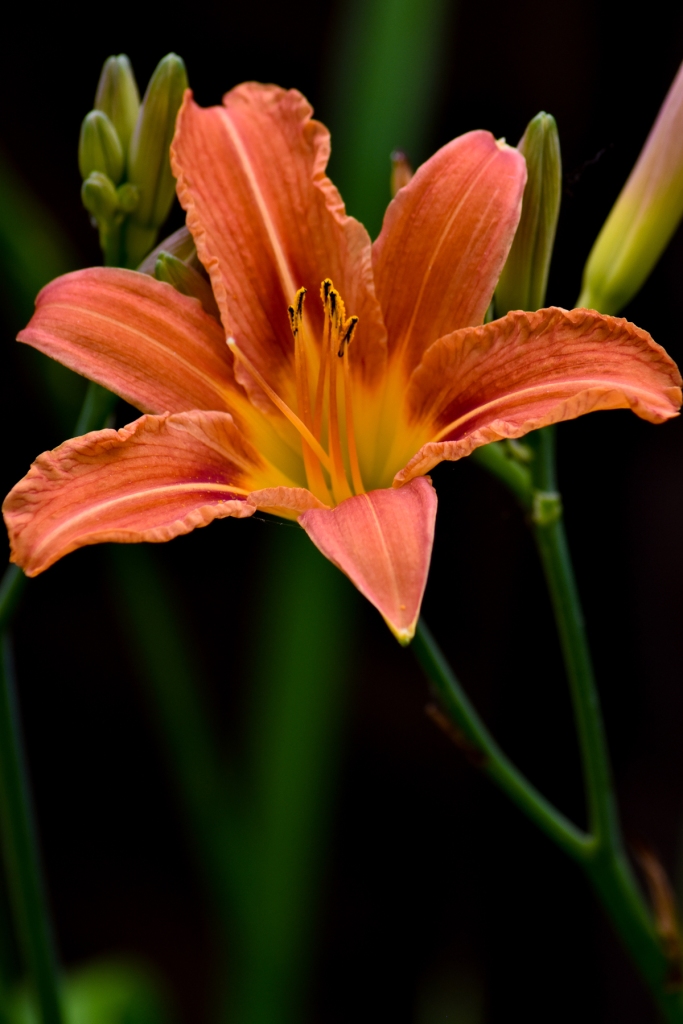
You’ll find the introduction to this series here.
This post looks at Beauty.
Beauty, according to an ancient aphorism, lies in the eye of the beholder. Experience suggests this is so, most of the time. But will our future produce different standards of beauty? We know fashions, trends, local traditions, and beliefs all impact on what is and is not seen as beautiful in the world.
The natural world is crammed with beauty (it also contains a good deal that’s ugly, but we’ll leave that aside here). There’s something almost universally uplifting to the spirit in a sight of natural beauty. Will growing awareness of the intrinsic natural beauty of our world influence attitudes toward the coming climate emergency? Perhaps that approaching catastrophe will increase humanity’s awareness of the special nature of the world we occupy. Will appreciation of the beauty of our planet then help in the fight to reduce our carbon footprints? Of course, the term is so frequently applied to feminine appearance as well that it’s become almost synonymous with that aspect.
Looking at human beauty, will improvements in cosmetics and physical health, edging more people toward a perceived ‘perfection’, permit the display of human bodies in their natural state without condemnation? And will such liberation apply to works of art, the cinema, theatre, as well as to public exposure in the street?

Much of the condemnatory aspect of human body display stems from religious organisations and their extreme attitudes to sex, usually the result of concern that preoccupation with the physical beauty of a member of any attractive gender is likely to take the viewer’s mind away from what these organisations frequently label ‘spiritual matters’. Will a growing trend toward reason and rationality reduce the influence of such prohibitions? When logic overrules dogma, will a greater freedom result in an entirely different set of rules about what is and is not ‘decent’ or ‘obscene’?
These are just some of the suggestions I make for consideration if you’re including the idea of beauty in your story. I’m sure you can think of many more. Please feel free to let us know your ideas, using the comment space below the post.
Part 1, Introduction and Accommodation. Part 2, Activism. Part 3, Advertising. Part 4, Agriculture. Part 5, Artificial Intelligence. Part 6, Animals, as Pets. Part 7, Art. Part 8, Authority. Part 9, Banking.
Research examples:
Wikipedia 1
Wikipedia 2
Glamour
Britannica
Allure
YouTube



I’d rephrase “Beauty lies in the eyes of the beholder” by adding “and it’s cultural.” Take this image of a woman from Ching Mai, Thailand, for example – https://www.stocksy.com/2044769/portrait-of-a-long-neck-tribal-woman-in-chiang-mai-thailand . We may think it’s harsh on her, but she does it willingly to enhance her beauty.
LikeLiked by 1 person
I agree with the ‘cultural aspect, Asit. But the chances are that the woman depicted had little real choice in the application of the rings. They start this process around the age of 4 or 5 and the women are ‘expected’ to continue through their early years, or be considered either ‘ugly’ or lacking in loyalty to their tribe. So, I suspect there is little that is ‘willing’ about the woman’s limited choice, rather like the FGM still practiced in certain primitive societies.
LikeLiked by 1 person
Agreed. However, in addition to your observation, even when they reach an age where they can think independently, there’s peer-pressure to ‘fit-in’. That how the billion-dollar cosmetic industry makes money.
LikeLiked by 1 person
Oh, I agree, Asit. Peer pressure can be a spur to all groups, gendres, and age groups. And, as you say, it’s an important factor in advertising. Rather like tradition and custom, it’s an influence that needs to be included in education curiculla so children are at least aware of the influences acting on their development.
LikeLike
Enter the religious dogma [exasperated sigh]. I see the religious condemnation as a control issue – of men, too, but mostly of women. The double-standards and hypocrisy are especially elevated in the more fundamentalist religions, no matter what their flavour. It’s all about do-as-I-say. Sounds like Trump. 😉
LikeLiked by 1 person
Exactly, Lynette: a control mechanism, which has nothing to do with morality or ‘worship’ and everything to do with ensuring congregations obey the dictates of those in authority.
LikeLiked by 1 person
Reblogged this on Time Traveler on the road of Life.
LikeLiked by 1 person
Thanks for the reblog, Brenda.
LikeLiked by 1 person
The beauty of the flower and the lovely lady may be in my eye, but how could anyone else miss it? Thanks for the pictures. I agree that religious dogma has ruined many beautiful things.
LikeLiked by 1 person
Thank you, Brenda.
It is amazing how many people go through life without ever appreciating the wonders of the world about them. And, equally, some beauties are obvious to some yet others remain blind to them.
It would seem obvious that any organisation promoting worship of a creator would want to praise the beauty of anything thus ‘created’, but false shame and selectivity frequently cause religious organisations to condemn and deny natural beauty in its many forms. Odd.
LikeLiked by 1 person